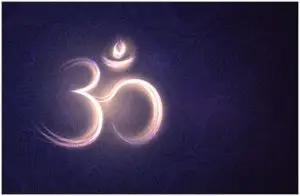Caffeine is the most widely consumed mood-altering substance on the planet. Natural sources of caffeine include coffee, cocoa beans (chocolate), and tea. There is even a small amount in decaffeinated coffee.
In addition, manufacturers add caffeine to many drinks, foods, supplements, and medicines.
For instance, there are caffeine-containing analgesics, like – Anacin, Midol, and Excedrin that deliver 64 to 130 milligrams of caffeine per two-tablet dose as well as over-the-counter stimulant medications, such as – NoDoz and Vivarin which contain 100 to 200 milligrams of caffeine per tablet.
Although there’s plenty of evidence to suggest that a morning cup of coffee can boost productivity and positively influence your health, some people find that caffeine becomes something they need, rather than something they enjoy. It becomes an addiction.
This happens since once you’ve become tolerant to caffeine, you need more and more caffeine to get its strong stimulating effects, and if you don’t consume it, your body goes into withdrawal mode.
Actually, caffeine withdrawal and caffeine intoxication are classified as mental disorders in the American Psychiatric Association’s Diagnostic and Statistical Manual of Mental Disorders.
Note – As little as 100 mg of caffeine per day, the amount in about 12 ounces of coffee, can lead to symptoms of caffeine withdrawal.
Caffeine Withdrawal Symptoms
If the body becomes dependent on caffeine, eliminating it from the diet can cause withdrawal symptoms which usually begin 12 to 24 hours after stopping caffeine consumption.
#1 Constipation
Individuals who regularly intake caffeine may experience mild constipation after reducing their caffeine intake.
Constipation is thought to affect around 20 percent of people in the US, resulting in about 8 million doctor visits a year.
The medical definition of constipation actually requires an individual to have just one of many symptoms which include:
- a feeling of incomplete emptying;
- stool consistency which looks like rocks and pebbles;
- straining to start or complete a bowel movement;
- fewer than three bowel movements per week.
Constipation may occur after halting caffeine intake since caffeine stimulates contractions in the intestines and colon. These contractions help move waste material and food through the gastrointestinal tract.
Tip
Individuals who are constipated are frequently told to increase their dietary fiber intake.
This is because increasing dietary fiber intake is thought to increase consistency and the bulk of bowel movements, making them much easier to pass.
Examples of high-fiber foods include:
- 1 medium sweet potato: 4.8 grams;
- 1 medium apple: 3.3 grams;
- 1/4 cup dates: 3.6 grams;
- 1 small pear: 4.4 grams;
- 1/2 cup navy beans: 9.5 grams.
Being dehydrated regularly can also make you become constipated. To prevent this, it is essential to drink enough water and stay hydrated.
#2 Dizziness
Caffeine withdrawal can cause some individuals to lose their sense of equilibrium and experience vertigo.
#3 Headaches
The number one complaint from anyone withdrawing from caffeine are headaches which can be disabling. Concentration is impossible, light is suddenly too bright to bear, and all one wants is relief. Depending on the severity, these headaches can be painful and debilitating, or they can be a mild nuisance.
Many people reach for an over-the-counter drug like Excedrin, Midol, or Anacin (Caffeine 30 MG+Aspirin 400 MG), but this is not recommended since they all contain caffeine.
Tip
As you decrease your coffee consumption, take ginseng supplements or add ginseng to your drink. This may be effective in reducing the severity of your headaches since the caffeine headaches you are suffering from are the result of swollen blood vessels, that is why ginseng works as a natural remedy for coffee withdrawal.
#4 Fatigue
Caffeine decreases our perceived exertion during physical activity and increases energy availability. As a result, a cup of coffee can significantly improve physical performance and make you feel like you can do more.
Hence, there is no surprise that the previous energy levels provided by morning coffee are no longer present, giving rise to a lack of energy and feelings of drowsiness.
#5 Flu-like Symptoms
Blocked sinuses, a stuffy nose, and sinus pressure have all been reported by individuals withdrawing from caffeine.
#6 Depression
This symptom manifests between 24 to 36 hours after your last caffeine intake. This happens because when you quit caffeine, your serotonin (a neurotransmitter that helps regulate appetite and digestion, social behavior and mood, and sexual desire) levels will drop and this will have an immediate impact on your mood, and consequently, depression sets in.
#7 Irritability
After several hours without caffeine, everything and everyone seems to be getting on your nerves. It’s best to isolate yourself for a while. Also, you may feel miserable, with diminished contentedness.
Notes
The symptoms of caffeine withdrawal should only last between 2 and 9 days, with a peak intensity of the symptoms occurring 24 to 52 hours after caffeine is cut out.
An estimated 50% of people experience caffeine withdrawal symptoms when they eliminate caffeine.
How to Reduce Symptoms
Although many individuals prefer to quit their bad habits suddenly, it is not recommended for caffeine elimination, as quitting caffeine suddenly tends to worsen caffeine withdrawal symptoms notably.
Instead, a good method to taper down your caffeine consumption is by reducing it by about 15% every 14 days.
The advantage is that you shouldn’t have noticeable caffeine withdrawal symptoms while cutting back, and you can slowly replace your caffeinated drinks and foods with decaffeinated or un-caffeinated versions.
In this way, in time, you will completely stop your caffeine consumption, however, it will take several months.
Hydration
When you stop the intake of caffeinated beverages, you will need to hydrate yourself another way. Staying hydrated may reduce the headache and fatigue strongly associated with caffeine withdrawal, as headache and fatigue are also symptoms of dehydration.
To maintain the proper levels of hydration, it is recommended to drink at least eight 8-oz. glasses of water a day.
Sleep
Making sure that you get plenty of quality sleep as you get off caffeine can help fight the fatigue you may be feeling.
Tip – exposure to light during the day is beneficial, however, nighttime light exposure has the opposite effect. There are a few methods you can use to reduce nighttime blue light exposure, such as:
- stop watching TV and turn off any bright lights two hours before heading to bed;
- install an app that blocks blue light on your computer, laptop, tablet, and smartphone;
- wear glasses that block blue light.
Final Words
No doubt, caffeine withdrawal can cause several bad days. But, caffeine does not cause the severity of harmful drug-seeking behaviors or withdrawal as alcohol or street drugs.
Image source – Shutterstock
READ THIS NEXT: Diet Guideline According To Your Zodiac Sign
References https://www.ncbi.nlm.nih.gov/pubmed/15448977 https://link.springer.com/article/10.1007/s00213-004-2000-x
- About the Author
- Latest Posts
As a founder and chief author at InsightState.com, Bulgarea Candin helps readers on their spiritual journeys. His writings are designed to inspire creativity and personal growth, guiding readers on their journey to a more fulfilled and enlightened life.




